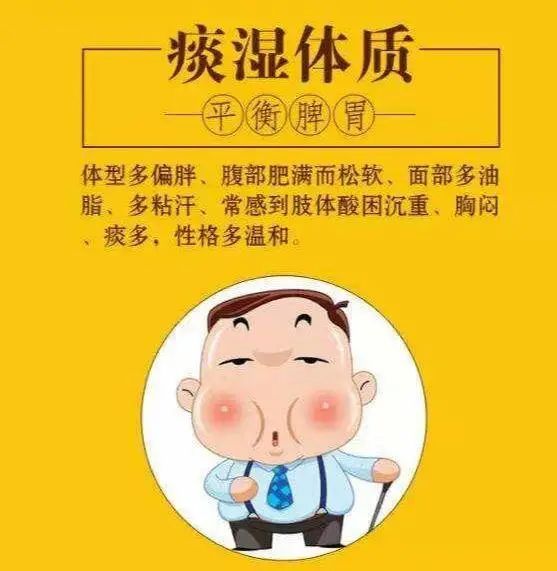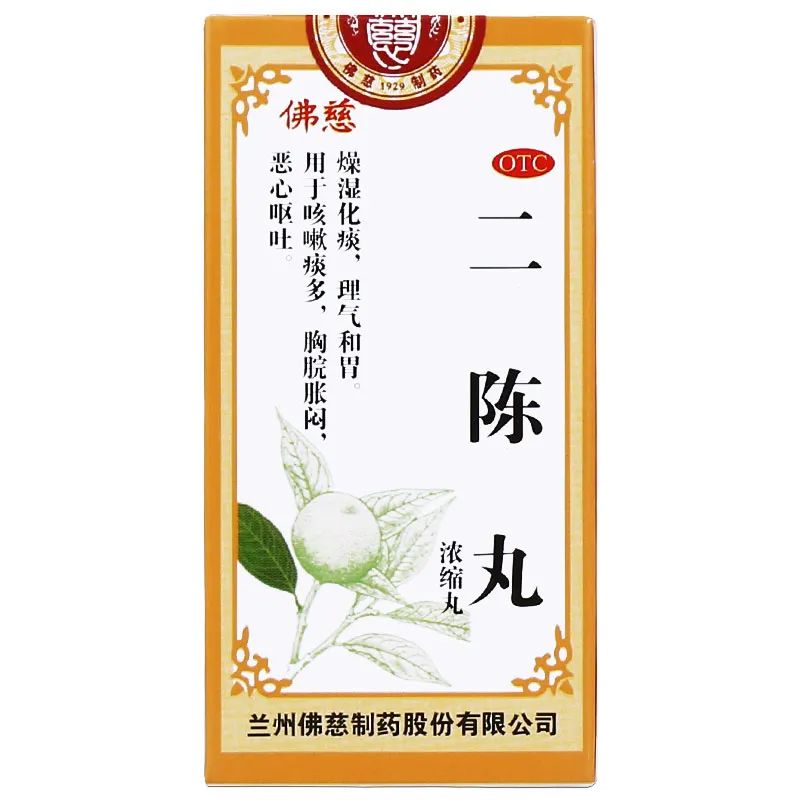 During a recent Traditional Chinese Medicine (TCM) consultation, the doctor asked me about my sleep. I replied that I sleep well, almost through the night without dreams. The doctor examined my tongue coating, which was thick and white, and remarked that it was no wonder I felt sleepy; a phlegm-damp constitution often leads to excessive sleepiness. I was puzzled—could my good sleep be due to a phlegm-damp constitution? However, reflecting on my physical condition, I realized I exhibited several typical symptoms of this constitution. Firstly, I often felt a white, thin phlegm, especially after consuming meat or sweets, which made the phlegm more pronounced; occasionally, I also experienced a sweet taste in my mouth. There was a period when I suffered from abdominal distension, which was not painful, and I would feel bloated even after eating a small amount. The most typical symptom is when I drink alcohol; I usually do not get drunk but feel bloated instead.
During a recent Traditional Chinese Medicine (TCM) consultation, the doctor asked me about my sleep. I replied that I sleep well, almost through the night without dreams. The doctor examined my tongue coating, which was thick and white, and remarked that it was no wonder I felt sleepy; a phlegm-damp constitution often leads to excessive sleepiness. I was puzzled—could my good sleep be due to a phlegm-damp constitution? However, reflecting on my physical condition, I realized I exhibited several typical symptoms of this constitution. Firstly, I often felt a white, thin phlegm, especially after consuming meat or sweets, which made the phlegm more pronounced; occasionally, I also experienced a sweet taste in my mouth. There was a period when I suffered from abdominal distension, which was not painful, and I would feel bloated even after eating a small amount. The most typical symptom is when I drink alcohol; I usually do not get drunk but feel bloated instead. Additionally, I tend to have oily skin, especially during the hot summer months, requiring me to wash my face three to four times a day. Lastly, I am overweight; according to my BMI, I am classified as overweight, but embarrassingly, I have gained weight in the least desirable areas, with a typical sign being a soft, oily abdomen. How did this constitution develop? In terms of diet, I had a phase where I loved eating meat, not picky about fat or lean; I also enjoyed sweets, with chocolate and cream being my favorites. Perhaps my personality is also related to my constitution; those with a phlegm-damp constitution tend to be gentle and patient. Why are some people so bold, acting decisively, while others are hesitant and indecisive? It turns out these traits are determined by the body; if the body lacks certain functions, it cannot perform those actions. To summarize, what are the main manifestations of a phlegm-damp constitution? Oily skin, whether on the face or scalp, resulting in a shiny appearance; fatigue in the limbs, characterized by a laziness dictated by the body, preferring to sit rather than stand, and to lie down rather than sit, feeling drowsy and dazed; obesity, with the most typical sign being a soft, full abdomen, and the flesh on the body being soft and pliable, a clear indicator of middle-aged dampness; abdominal distension and poor appetite, meaning that the appetite may not be good, but even a little overeating can lead to bloating; difficulty with bowel movements, spending a long time in the restroom, feeling incomplete, and difficulty flushing; additionally, there may be a thick white tongue coating, a swollen tongue body, athlete’s foot, dampness in the scrotum, or prolonged clear vaginal discharge. If more than half of these symptoms are present, it is likely a phlegm-damp constitution. Nowadays, the number of people with a phlegm-damp constitution is increasing, largely due to poor dietary control and lack of exercise. TCM states: “All diseases arise from phlegm,” indicating that phlegm is related to many diseases. This “phlegm” is quite troublesome, akin to a flirtatious character, much like the wind. Phlegm in the body can be both tangible and intangible; what does this mean? Tangible phlegm is the visible phlegm that some people cough up, especially after consuming rich foods or experiencing chest tightness and nausea, resulting in white, yellow, or green phlegm; intangible phlegm refers to sensations of a foreign body in the throat that cannot be coughed up or swallowed; some people snore during sleep, which is also related to phlegm; others frequently experience dizziness, which is also associated with phlegm.
Additionally, I tend to have oily skin, especially during the hot summer months, requiring me to wash my face three to four times a day. Lastly, I am overweight; according to my BMI, I am classified as overweight, but embarrassingly, I have gained weight in the least desirable areas, with a typical sign being a soft, oily abdomen. How did this constitution develop? In terms of diet, I had a phase where I loved eating meat, not picky about fat or lean; I also enjoyed sweets, with chocolate and cream being my favorites. Perhaps my personality is also related to my constitution; those with a phlegm-damp constitution tend to be gentle and patient. Why are some people so bold, acting decisively, while others are hesitant and indecisive? It turns out these traits are determined by the body; if the body lacks certain functions, it cannot perform those actions. To summarize, what are the main manifestations of a phlegm-damp constitution? Oily skin, whether on the face or scalp, resulting in a shiny appearance; fatigue in the limbs, characterized by a laziness dictated by the body, preferring to sit rather than stand, and to lie down rather than sit, feeling drowsy and dazed; obesity, with the most typical sign being a soft, full abdomen, and the flesh on the body being soft and pliable, a clear indicator of middle-aged dampness; abdominal distension and poor appetite, meaning that the appetite may not be good, but even a little overeating can lead to bloating; difficulty with bowel movements, spending a long time in the restroom, feeling incomplete, and difficulty flushing; additionally, there may be a thick white tongue coating, a swollen tongue body, athlete’s foot, dampness in the scrotum, or prolonged clear vaginal discharge. If more than half of these symptoms are present, it is likely a phlegm-damp constitution. Nowadays, the number of people with a phlegm-damp constitution is increasing, largely due to poor dietary control and lack of exercise. TCM states: “All diseases arise from phlegm,” indicating that phlegm is related to many diseases. This “phlegm” is quite troublesome, akin to a flirtatious character, much like the wind. Phlegm in the body can be both tangible and intangible; what does this mean? Tangible phlegm is the visible phlegm that some people cough up, especially after consuming rich foods or experiencing chest tightness and nausea, resulting in white, yellow, or green phlegm; intangible phlegm refers to sensations of a foreign body in the throat that cannot be coughed up or swallowed; some people snore during sleep, which is also related to phlegm; others frequently experience dizziness, which is also associated with phlegm. TCM states that the spleen is the source of phlegm production, while the lungs are the storage organ for phlegm. Many people resort to phlegm-dissolving medications upon seeing phlegm, which can be effective, but the problem often recurs after a while. Little do they know that the spleen is the root cause of phlegm production; strengthening the spleen while eliminating phlegm is the method for addressing both the symptoms and the root cause. A famous ancient formula for resolving phlegm is Er Chen Tang (Two Aged Decoction): Chen Pi (Aged Tangerine Peel), Ban Xia (Pinellia Tuber), Fu Ling (Poria), and Gan Cao (Licorice). Chen Pi strengthens the spleen and promotes qi; it is warm in nature, and warmth helps the spleen to function. Additionally, Chen Pi has a fragrant aroma that awakens the spleen, meaning it can stimulate the spleen to work. Ban Xia is known as a phlegm-dissolving miracle; it can resolve phlegm and dissipate lumps, breaking down sticky phlegm, and can also descend rebellious qi, alleviating cough, hiccups, and vomiting. Fu Ling is an expert in dispelling dampness; it has a mild flavor and excellent diuretic properties, as phlegm is generated from dampness, removing dampness effectively cuts off the source of phlegm. Gan Cao has many benefits, but here it primarily supplements the spleen; the spleen needs energy to function effectively. Er Chen Tang is very suitable for regulating a phlegm-damp constitution. There is a TCM patent medicine called Er Chen Wan (Two Aged Pill); if it is not available, one must prepare the medicine themselves. Other TCM patent medicines based on Er Chen Tang include Liu Jun Zi Wan (Six Gentlemen Pill), Xiang Sha Liu Jun Wan (Aromatic and Digestive Six Gentlemen Pill), and Chen Xia Liu Jun Zi Wan (Aged Tangerine Peel and Pinellia Six Gentlemen Pill), all of which are excellent for dispelling phlegm-damp.
TCM states that the spleen is the source of phlegm production, while the lungs are the storage organ for phlegm. Many people resort to phlegm-dissolving medications upon seeing phlegm, which can be effective, but the problem often recurs after a while. Little do they know that the spleen is the root cause of phlegm production; strengthening the spleen while eliminating phlegm is the method for addressing both the symptoms and the root cause. A famous ancient formula for resolving phlegm is Er Chen Tang (Two Aged Decoction): Chen Pi (Aged Tangerine Peel), Ban Xia (Pinellia Tuber), Fu Ling (Poria), and Gan Cao (Licorice). Chen Pi strengthens the spleen and promotes qi; it is warm in nature, and warmth helps the spleen to function. Additionally, Chen Pi has a fragrant aroma that awakens the spleen, meaning it can stimulate the spleen to work. Ban Xia is known as a phlegm-dissolving miracle; it can resolve phlegm and dissipate lumps, breaking down sticky phlegm, and can also descend rebellious qi, alleviating cough, hiccups, and vomiting. Fu Ling is an expert in dispelling dampness; it has a mild flavor and excellent diuretic properties, as phlegm is generated from dampness, removing dampness effectively cuts off the source of phlegm. Gan Cao has many benefits, but here it primarily supplements the spleen; the spleen needs energy to function effectively. Er Chen Tang is very suitable for regulating a phlegm-damp constitution. There is a TCM patent medicine called Er Chen Wan (Two Aged Pill); if it is not available, one must prepare the medicine themselves. Other TCM patent medicines based on Er Chen Tang include Liu Jun Zi Wan (Six Gentlemen Pill), Xiang Sha Liu Jun Wan (Aromatic and Digestive Six Gentlemen Pill), and Chen Xia Liu Jun Zi Wan (Aged Tangerine Peel and Pinellia Six Gentlemen Pill), all of which are excellent for dispelling phlegm-damp.

After a cold, the cough never seems to go away; check out this TCM patent medicine.
How long should one take TCM patent medicines? After reviewing hundreds of instructions, I have come to a conclusion.
For the TCM and Western medicines and formulas mentioned in this article, please use them under the guidance of a professional.
TCM enthusiasts can join the discussion group on the public account homepage for interaction.


